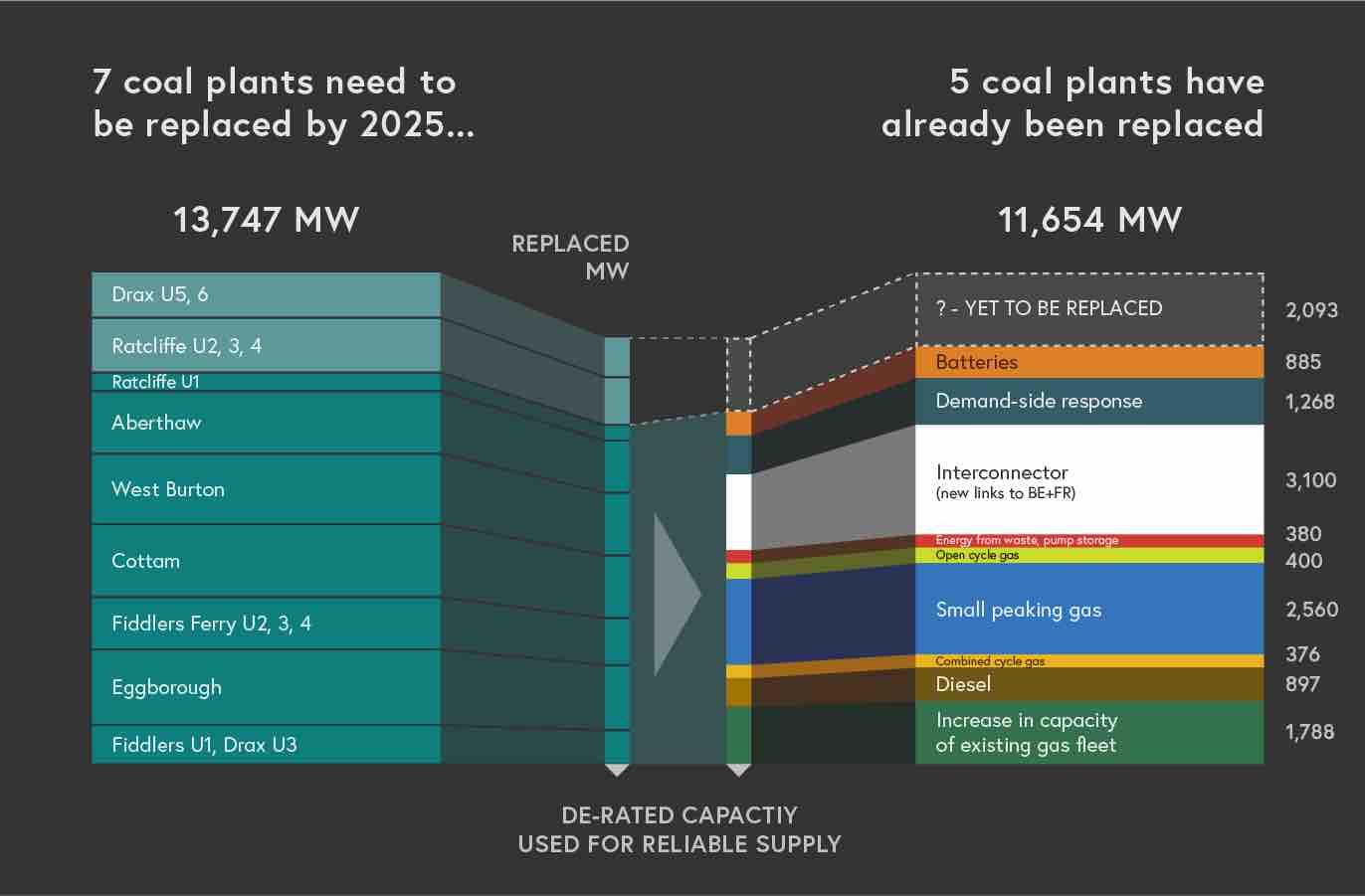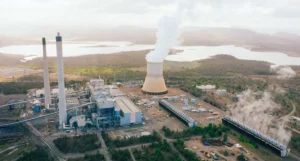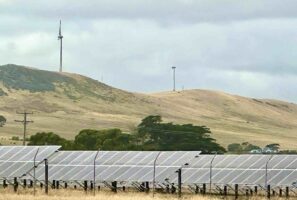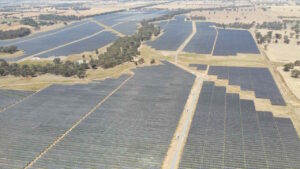A new report published this week by WWF and Sandbag, a British climate change policy think-tank, has revealed that not only is the UK on track to phase-out coal by 2025, but that the country doesn’t need to build any new large-scale gas plants in order to keep the lights on.
The report suggests, instead, that if the country invests in new renewables, storage, and more flexible technologies, then the grid will remain stable, and enough power will be available.
When UK Secretary of State Amber Rudd announced in 2015 that the country would phase-out coal by 2025, she explained that, “in the next 10 years, it’s imperative that we get new gas-fired power stations built.”
This “gas bridge” was understood to be a natural and necessary step if coal was to be so dramatically scaled back.
This, unsurprisingly, led to a mad dash for gas developers, and according to statistics from February, 10 large-scale gas plants with a capacity of 12 GW had applied for 15-year contracts, and an additional five with a capacity of 10 GW were preparing to make similar applications.
However, according to the new Coal to Clean report published by WWF and Sandbag, which analyses the UK power sector as a whole, “the UK is on track to phase-out coal by 2025 and keep the lights on without building any new large gas plants.”
Specifically, by the end of 2016, there were seven coal plants across the UK, with a capacity of 13,747 MW, left to replace to achieve the 2025 coal phase-out.
However, most of the capacity vacuum that would come from replacing the remaining UK coal plants has already been replaced with a mixture of batteries, demand-side response, interconnectors, and small-scale fossil fuel generation.
According to the analysis by WWF and Sandbag, only 2.8 GW of capacity is left to be replaced, and this can be done without any new large-scale gas plants.
The UK might attempt to look to small-scale fossil fuel generators, but in reality this will be unnecessary.
By 2025, according to the report, renewable energy in the UK will generate more electricity annually than the highest level of coal electricity generated in any year this century (142 TWh in 2006).
Further, 95% of the required renewable energy growth necessary to replace coal is already contracted or under construction – and the Government has already promised additional funding for the last 5%.
Unsurprisingly, given its recent explosion in popularity and the continued declines in technology costs, offshore wind will account for most of the growth between 2017 and 2025. Click here to see interactive graph
Electricity from gas is also falling, having peaked in 2008 and dropping 24% in 2017 than that of its peak. If the existing potential additional gas capacity goes forward it could result in locking the UK into gas-related emissions for the next 40 years.
In reality, the necessary capacity required across the UK is only needed to run occasionally – a situation unsuitable for large-scale gas.
“The UK government is leading the way and has set an international precedent by sending coal to the dustbin of history,” said Gareth Redmond King, WWF Head of Climate and Energy. “However, it is essential the Government does not substitute one dirty power source for another.
“We need to continue to look forward, doubling down on investment in renewables and targeting our efforts on long term energy storage. We should focus next on removing gas from the energy mix altogether.”
“Amazingly, the UK’s coal phase-out will not require a ‘gas bridge’ as many predicted: surging renewable energy ensures that gas use in the power sector has already peaked,” added Charles Moore, Analyst at Sandbag. “The UK does not need to build any more large gas power plants to keep the lights on.
“Measures to support the construction of a new wave of large gas plants would prove a costly mistake for energy bill-payers and the climate.
Ultimately, meeting our climate objectives will require a total gas phase-out: the Government must begin planning for this now.”
The authors of the report are clear to point out that the UK Government must make policy decisions nowin order to circumvent unnecessary spending and emissions. The report provides five key recommendations for Government:
- Unleashing the potential of solar and onshore wind now
- Not bringing forward policy measures to support new build large gas
- Preventing excess emissions from small peaking gas
- Increasing innovation funding for long term electricity storage technologies
- Mitigating the risk of a slower fall in gas use and begin planning now for a gas phase-out












